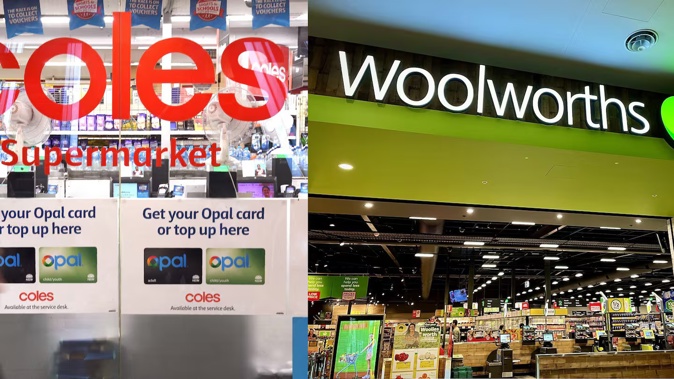
Anger at grocery prices and some supermarket policies has been blamed – or credited – for inspiring Australia’s Word of the Year.
“Colwesorth” is a blended word used in reference to the perceived duopoly of Australia’s largest supermarket retailers, Coles and Woolworths, the Australian National University (ANU) said today.
ANU National Dictionary Centre senior researcher Mark Gwynn said Colesworth was used in mostly negative contexts to highlight the power and market share the two businesses held in Australia.
Gwynn said although Colesworth had been around for several years, its usage only recently spiked “as ordinary Australians vented their frustration at the increasing prices of food staples and dodgy pricing practices”.
Gwynn said blending the supermarket names Coles and Woolworths provided a pithy way of referring to both supermarkets while simultaneously hinting at negative aspects of what was perceived as an unfair duopoly.
He added: “Aussies walk out of the supermarket with less after paying more, but then hear news of massive profits in the supermarket sector.
“And with official investigations into some of the pricing practices at Australia’s two largest supermarkets, it’s no wonder that ordinary shoppers have become cynical.”
Australian supermarket giants have been the focus of a government-ordered inquiry addressing issues including market power and pricing tactics.
“Woolworths enjoys a 38% share of supermarket sector sales, while Coles generates 29%, representing a far more concentrated sector than in comparable economies,” The Guardian reported.
In New Zealand, Woolworths and two Foodstuffs organisations combined have an even larger share of supermarket sales.
Foodstuffs is seeking to merge its North Island and South Island companies. The Commerce Commission last month declined that merger application but Foodstuffs might still appeal.
Consumer NZ in August said Woolworths and Foodstuffs held a 90% New Zealand market share. Foodstuffs operates Four Square, New World and Pak’nSave.
ANU said the Dictionary Centre’s Word of the Year shortlist comprised a mix of words and compounds that said something about the year in Australian society.
Other shortlisted words at ANU this year were “climate trigger” and “ute tax” which the university said achieved prominence via national debate.
The university said its “word nerds” also took note of “yimby”.
A yimby is the antithesis of a nimby and the word means “yes in my backyard”.
Take your Radio, Podcasts and Music with you









